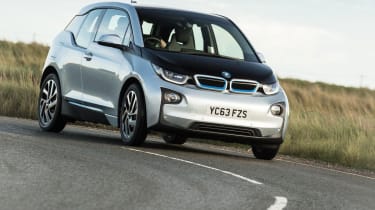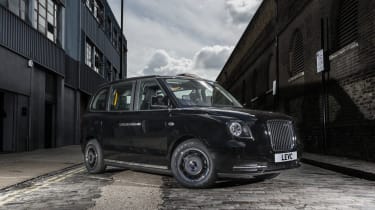What is a range extender hybrid?
The hybrid performance car is no longer an oxymoron. Here’s how manufacturers are using this new tech to make them better, not just greener
You might have heard a little bit about range-extender hybrids a few years ago, but as plug-in powertrains become more flexible and powerful, and range anxiety in full-EVs lessens, so too has the range extender fallen out of favour. A range-extender powertrain is defined by its layout of a combustion engine being a small supplementary motor to, as its name suggests, extend the range from the battery pack. Range extenders also reduce the parasitic mechanical losses associated with combustion engines by not being directly connected to the wheels, instead acting only as an electricity generator, hence their general incompatibility with performance cars.
While private cars have turned away from range-extender-style hybrids, public transport such as buses and the new LEVC London Taxi use the technology to dramatically reduce their carbon emissions without the need to plug in as often as a pure electric alternative. In urban centres especially, vehicles such as the new London Taxi are able to run almost entirely on electric mode thanks to the constant stop-start driving style that tops up the batteries via regenerative braking, only turning to the combustion engine when the batteries are at a critically low level.
Range extender cars
- BMW i3 REx
- Chevrolet Volt
- LEVC TX London Taxi
Pro: Most efficient form of hybrid without range anxiety
Con: Is the most compromised in terms of performance applications






